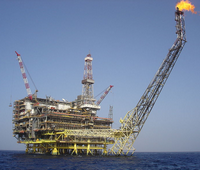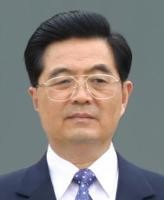Last week, the U.S. appointed its first ambassador to Turkmenistan in five years. In an email interview, Luca Anceschi, an expert in Turkmenistan’s foreign policy at La Trobe University, discussed U.S.-Turkmenistan relations. WPR: What is the recent background for U.S.-Turkmenistan ties? Luca Anceschi: The recent appointment of a new U.S. ambassador to Turkmenistan represents a further step in the timid process of U.S.-Turkmen rapprochement that was initiated by the Obama administration in 2009. In the George W. Bush years, Turkmenistan went off the radar of U.S. policy in Central Asia, as Washington’s attention was almost entirely devoted to military and […]
Energy Archive
Free Newsletter

In recent months, news outlets in Japan and the U.S. have reported that Mongolia is negotiating with those two countries to serve as a regional depository for spent nuclear fuel. The proposed plan would permit geographically constrained countries in the region, such as Japan, South Korea and Taiwan, to dispose of their spent fuel in the spacious Central Asian state. The veracity of the reporting on the negotiations is still unknown. When the story first broke in March, the Mongolian Foreign Ministry was quick to dismiss the notion that Mongolia would host Asia’s nuclear waste. The statement went on to […]
Myanmar was recently reported to have concluded its first set of international energy deals — with China, Singapore and South Korea — since the installation of a nominally civilian government late last year. In an email interview, Matthew Smith, a senior consultant for EarthRights International, discussed Myanmar’s trade and energy relations. WPR: What is the current state of Myanmar’s energy sector, and who are its major international partners? Matthew Smith: Myanmar — also referred to as Burma — is rich in natural gas, and its rivers have the region’s greatest potential for hydropower generation. Investment in the energy sector is […]

America’s successful assassination of Osama bin Laden, long overdue, naturally renews talk across the country about ending the nation’s military involvement in Afghanistan-Pakistan. Coupled with the ongoing tumult unleashed by the Arab Spring, Washington is once again being encouraged to reconsider its strategic relationship with the troubled Middle East. The underlying current to this debate has always been the widely held perception that America’s “oil addiction” tethers it to the unstable region. Achieve “energy independence,” we are told, and America would free itself of this terrible burden. The simplicity of that argument belies globalization’s crosscutting interdependencies, which only grow more […]

The Libyan debacle has been a major wakeup call for those thinking that Europe has a grip on its neighborhood or that the European Union might one day become a serious geopolitical actor. The point is now so moot, it’s barely worth making. What’s less obvious is that the fallout from the Libyan intervention will have a serious impact on the upstream energy landscape around Europe. That’s not just because the EU has lost around 1 million barrels per day of sweet oil production and around 16 percent of its gas supplies for the “EU 15,” but also because the […]

Chinese truckers at the port of Shanghai ended a three-day strike on April 23 after local authorities released a communiqué promising the reduction of logistics fees and attempts to mitigate the effect of rising fuel prices. The incident made headlines in global media coverage, as it threatened operations in the world’s largest port. But it is just the latest in a widespread pattern across China, with similar protests by independent truckers and taxi drivers angered at rising fuel costs taking place on a regular basis in all Chinese cities. The mix of repression and accommodation shown in Shanghai is also […]
